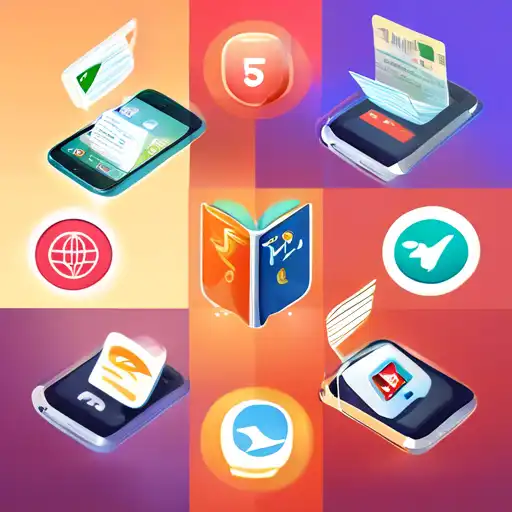Introduction to Language Learning Apps
In today's globalized world, learning a new language has never been more accessible, thanks to the plethora of language learning apps available at our fingertips. Whether you're a beginner or looking to polish your fluency, these apps offer personalized, interactive, and engaging ways to learn languages quickly. Here, we explore the top 5 apps that stand out for their effectiveness, user-friendly interfaces, and innovative learning methodologies.
1. Duolingo: Gamified Learning for Everyone
Duolingo turns language learning into a fun and addictive game. With its colorful interface and bite-sized lessons, it's perfect for learners of all ages. The app covers over 30 languages and uses a combination of reading, writing, speaking, and listening exercises to reinforce learning. Its streak feature motivates users to practice daily, making it a great tool for building consistent study habits.
2. Babbel: Tailored Lessons for Practical Conversation
Babbel focuses on getting you conversational as quickly as possible. Its lessons are crafted by linguistic experts and tailored to your native language, ensuring relevance and ease of understanding. Babbel's emphasis on real-life dialogues and grammar helps learners grasp the practical use of the language in everyday situations.
3. Rosetta Stone: Immersive Learning Experience
Rosetta Stone is renowned for its immersive approach, teaching languages through context rather than translation. This method encourages thinking in the target language from the start, mimicking the natural way we learn our first language. Its speech recognition technology also helps perfect your pronunciation, making it ideal for learners aiming for fluency.
4. Memrise: Learn with Locals
Memrise stands out by incorporating videos of native speakers into its lessons, offering learners authentic exposure to the language as it's spoken in real life. Its focus on vocabulary building through spaced repetition ensures long-term retention, while its quirky mnemonics make learning memorable and fun.
5. Anki: Customizable Flashcards for Serious Learners
Anki is a powerful tool for those who prefer a more personalized learning approach. Its flashcard system uses spaced repetition algorithms to optimize review times, making it highly effective for vocabulary acquisition. Users can create their own decks or download shared decks, offering flexibility to focus on specific areas of interest.
Choosing the Right App for You
Selecting the right language learning app depends on your goals, learning style, and the time you can dedicate. For casual learners, Duolingo or Memrise might be the best fit, while those seeking fluency might prefer Babbel or Rosetta Stone. Anki, on the other hand, is perfect for learners who want complete control over their study material.
Regardless of your choice, consistency is key to language acquisition. Combine these apps with real-life practice, and you'll be on your way to mastering a new language in no time. For more tips on effective learning strategies, check out our guide on maximizing your study time.
Final Thoughts
Language learning apps have revolutionized the way we approach acquiring new languages, making it more accessible, engaging, and effective than ever before. By leveraging the strengths of these top 5 apps, learners can accelerate their journey to fluency and open up a world of opportunities. Remember, the best app is the one that keeps you motivated and fits seamlessly into your daily routine.
